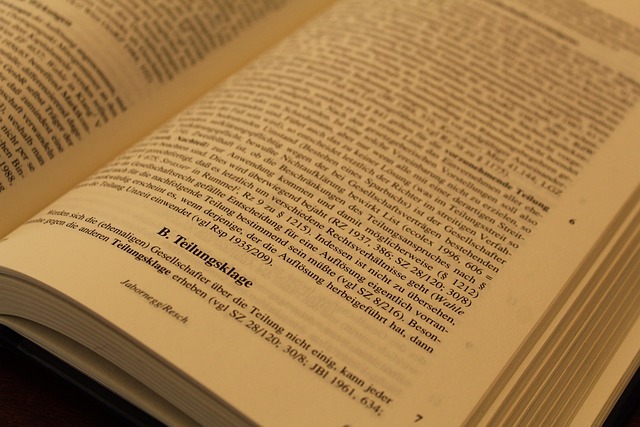In the dynamic UK legal system, clear communication through Court Documents UK translation services is essential for justice. Professional translators provide accurate, timely translations, ensuring all parties understand complex legal language without delay or misinterpretation, which can have dire consequences. These services employ expert linguists skilled in both languages and legal jargon, bridging communication gaps and enhancing efficiency. With strict deadlines and specialized terminology, advanced technology and human expertise are crucial for prompt, high-quality translations. Reputable services prioritize consistency, confidentiality, and ethical practices, ensuring fairness and transparency in court proceedings. Success stories highlight the importance of these services in complex international disputes and criminal trials, demonstrating their role in achieving just outcomes. The future focuses on AI integration and specialized legal translation expertise to meet growing demands.
In the intricate landscape of UK court proceedings, timely and precise translations play a pivotal role in ensuring justice. Accurate communication is paramount, yet navigating the complexities of legal jargon and diverse linguistic nuances can be a formidable challenge. This article delves into the critical importance of swift translations, exploring how professional translation services can streamline court processes. We dissect key challenges, best practices, and future trends, emphasizing the significance of reliable UK translation services for fairness and efficiency in legal proceedings.
- Understanding the Importance of Timely Translations in UK Court Proceedings
- The Role of Professional Translation Services for Legal Documents
- Key Challenges in Translating Court Documents Accurately and Promptly
- Ensuring Quality and Consistency in Legal Translation Services
- The Impact of Language Barriers on Court Proceedings in the UK
- Best Practices for Efficient Court Document Translation Processes
- Choosing the Right Translation Service Provider for Legal Cases
- Case Studies: Successful Timely Translations in UK Courts
- Future Trends in Court Document Translation Services
Understanding the Importance of Timely Translations in UK Court Proceedings

In the fast-paced environment of UK court proceedings, clear and concise communication is paramount. Timely translations play a crucial role in ensuring that all parties involved—from defendants to witnesses, legal counsel, and judges—can understand court documents accurately and promptly. This is where professional court document UK translation services step in, offering vital support to legal systems by bridging language barriers and facilitating fair and efficient justice.
Delayed or inaccurate translations can have severe consequences, potentially leading to misunderstandings, mistrials, or unfair advantages. Therefore, courts require precise and immediate translations of critical documents like witness statements, legal briefs, and court orders. Reputable translation services employ expert linguists who are not just fluent in both languages but also possess a deep understanding of legal terminology, ensuring that every term is conveyed accurately and appropriately in the target language.
The Role of Professional Translation Services for Legal Documents

Professional translation services play a crucial role in ensuring timely and accurate translations for court proceedings in the UK. With complex legal terminology and stringent deadlines, it’s essential to have experts handle these documents. Legal professionals often face the challenge of navigating a dense web of language nuances when dealing with cross-border cases or documents in languages other than English. This is where UK court document translation services step in as game changers.
They employ highly skilled translators who are not just linguistically adept but also well-versed in legal terminology, ensuring that the translated documents maintain their integrity and precision. These services enable effective communication, helping to bridge the language gap and facilitating smoother legal processes. By leveraging professional translation, legal practitioners can rest assured that their court documents are handled with expertise, thereby enhancing the overall efficiency of UK judicial proceedings.
Key Challenges in Translating Court Documents Accurately and Promptly

In the fast-paced world of UK court proceedings, accurate and timely translations of court documents are paramount to ensuring fairness and accessibility. The primary challenge lies in the meticulous nature of legal language, which demands precise translation while preserving the original intent and nuance. Court documents often contain specialized terminology, complex procedural references, and intricate legal arguments, making it crucial to engage professional translators with a deep understanding of both the source and target languages and legal systems.
Promptness is another significant hurdle. Legal cases have strict timelines, and delays in translation can hinder proceedings. UK translation services specializing in court documents must be equipped to handle urgent requests while maintaining quality. This often involves employing efficient workflows, leveraging advanced technology for machine translation where appropriate, and having a pool of expert human translators ready to step in at a moment’s notice.
Ensuring Quality and Consistency in Legal Translation Services

Ensuring quality and consistency is paramount in legal translation services, especially for court proceedings in the UK. Accurate translations of court documents demand a deep understanding of both the language and legal terminology to maintain precision and avoid any potential misinterpretation. Professional translators should possess expertise in legal fields to handle complex cases effectively.
Consistency is another critical aspect; translating court documents requires adhering to standard terminologies and formats to ensure uniformity across different files and languages. This guarantees that all parties involved, including judges, lawyers, and defendants, receive clear and coherent information, fostering fairness and transparency throughout the legal process.
The Impact of Language Barriers on Court Proceedings in the UK

Language barriers can significantly impact court proceedings in the UK, creating potential delays and misunderstandings. When court documents, such as witness statements, legal submissions, or judgments, are not accurately translated into the languages spoken by parties involved, it becomes challenging for everyone to comprehend and participate effectively. This is especially critical in a diverse society like the UK, where cases may involve individuals from various ethnic backgrounds and first languages.
Court proceedings rely on clear communication, and language barriers can lead to confusion, misinterpretations, or even accusations of deception. UK translation services play a vital role in overcoming these challenges by providing timely and accurate translations of court documents. They ensure that all parties have equal access to information, enabling fair and efficient legal processes, and ultimately contributing to the overall fairness and integrity of the UK justice system.
Best Practices for Efficient Court Document Translation Processes

When it comes to court proceedings, accurate and timely translations are paramount. UK court document translation services must adhere to strict best practices to ensure efficiency and accuracy. Firstly, leveraging advanced technology such as machine translation tools can significantly speed up the process while maintaining a high level of precision. These technologies, when used judiciously and supplemented by human experts, can reduce turnaround times without compromising quality.
Secondly, ensuring cultural relevance is crucial. Legal terminology often has specific nuances in different languages. Professional translators should have a deep understanding of both the source and target cultures to accurately convey legal concepts. Additionally, maintaining confidentiality and adhering to strict ethical guidelines are essential to preserve the integrity of court proceedings. Regular training for translation teams on legal terminologies and updates in case law further enhances the quality of translations.
Choosing the Right Translation Service Provider for Legal Cases

Choosing the right translation service provider is paramount for legal cases involving court documents in the UK. It’s not just about accuracy, but also understanding the nuances and terminology specific to the legal field. Look for providers with experienced legal translators who are fluent in both the source and target languages. They should have a proven track record of handling similar cases, ensuring confidentiality, and adhering to strict deadlines.
Additionally, reputable translation services will employ rigorous quality assurance processes, including peer review and editing by legal experts. This ensures that court documents are not only correctly translated but also culturally adapted for the intended audience. Reputable providers will also comply with professional standards and regulations, offering transparency and reassurance throughout the entire translation process.
Case Studies: Successful Timely Translations in UK Courts

Successful case studies demonstrate the critical role that timely translations play in UK court proceedings. One notable example involves a complex international commercial dispute where a specialized translation service ensured all court documents, including contracts, financial reports, and legal opinions, were accurately translated into multiple languages. This seamless process enabled judges and lawyers from diverse linguistic backgrounds to understand the nuances of the case, ultimately facilitating a swift resolution.
Another successful instance was a criminal trial where a prompt translation service played a pivotal role in ensuring a non-English speaking defendant received fair representation. All legal materials, including witness statements and police reports, were translated within 24 hours, allowing the defense team to prepare effectively. This timely support not only respected the defendant’s rights but also contributed to a more efficient judicial process, highlighting the importance of UK court document translation services in achieving justice.
Future Trends in Court Document Translation Services

The future of court document translation services in the UK looks set to be shaped by technological advancements and a growing demand for efficiency and precision. Artificial Intelligence (AI) and machine learning are expected to play a significant role, with translation tools becoming increasingly sophisticated. These technologies can handle vast volumes of text, ensuring quick turnaround times while maintaining accuracy. AI-powered systems can also learn from large datasets, improving their performance over time and reducing the need for human intervention in simple translations.
Another trend is the increasing reliance on specialized legal translation services. As court proceedings become more globalized, with cross-border cases becoming commonplace, there’s a growing need for translators who understand not just the language but also the intricacies of legal terminology and procedures. This specialization ensures that vital documents are translated accurately, reflecting the nuances of the original text and adhering to strict deadlines.
In the pursuit of justice, efficient and accurate court document translations are pivotal for fairness and accessibility within the UK legal system. As highlighted throughout this article, professional translation services play a crucial role in overcoming challenges related to language barriers, ensuring quality, and maintaining consistency. By adopting best practices and choosing reputable providers, the UK can continue to enhance its court proceedings, making them more inclusive and effective for all parties involved. Timely translations are not just desirable; they are essential to upholding the integrity of the legal process.
